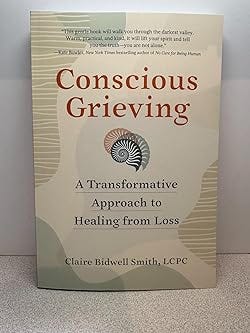Hiding from grief means hiding from life
I’ve been thinking about the red herrings in my life. The ones that sidetrack my attention from grief. It’s uncomfortable admitting that I crave these escapes.
How much diversion is healthy? Is the answer different if you’ve suffered a loss?
Distracting from the truth
In the first few months after Henry died, I needed to pull myself away from dark places and unanswerable questions.
If I wasn’t working I was reading, emailing, texting, or speaking with someone. I listened to dozens of audiobooks, some about grief, while I drove or walked. I played podcasts as I brushed my teeth and applied concealer to the dark circles under my eyes.
I wasn’t just hiding from my grief, I was hiding from my life.
One day, desperate for distraction, I started listening to “Genghis Khan.” Was this really the right time to learn about a Mongol Emperor? The obfuscation had to stop.
Making space for grief
I began allowing moments of silence into my day. I started to deal with a black blizzard of feelings. I also joined grief groups and a grief writing workshop. Gradually, I became more comfortable sitting with my sadness and absorbing my new reality.
Knowing Henry is gone isn’t the same as admitting, “I’ll never see my son again.”
I started writing about Henry and what his loss meant. The more I thought about my son, the better I could honor him. This helped me plan a celebration of life ceremony. I reached out to his beloved summer camp to launch a gardening program in his honor.
Finding balance
I’ll always crave diversions from the hard truths of life. Here are some tips that have helped me find an equilibrium.
Set a routine to kickstart your day. For me, that’s reflecting for 10 minutes, walking my dog Ramona, and eating breakfast.
Create a daily space for grief and schedule it. It’s something David Kessler, Megan Devine, and others discuss in their writing. It could be a time to journal, meditate, or look at family photos. I write during this time.
Tackle the toughest work when your mind is most energized.
Use distraction as a reward. I save my audiobooks for the second half of the day after I’ve completed my most important work.
Curate your news intake. Select the articles you read (online or otherwise) instead of making cable news the background track of your day.
Grieving consciously
In her new book, Conscious Grieving: A Transformative Approach to Healing from Loss, grief therapist and author Claire Bidwell Smith writes about making space for grief. She recommends consciously engaging with our grief. That starts with staying present and getting the support you need to deal with your feelings. She shares a new framework for each stage: Entering, Engaging, Surrendering, and Transforming. This YouTube recording offers a great summary.
Team Molly: How the Steinsapir family channels their grief
Kaye Steinsapir lost her beautiful daughter Molly on Feb. 15, 2021, due to injuries from an electric bike accident. Kaye and her family channel their grief through the Molly Steinsapir Foundation. In the 3+ years since its founding, the Foundation has raised funds and made countless gifts to support children and families in need. One of the organizations they support is Camp Harmony. Each summer, Camp Harmony hosts 300+ campers from underserved areas in and around LA for a week-long sleep-away camp in Ojai. Molly is helping children and families every day through this work.
Thanks for reading Channeling Grief ! Read my other posts here.







I needed to read this. I think I have been over-committing myself to keep my mind busy. It has begun to eat into my quiet space and I am beginning to feel the effects of that.
Thank you, Elizabeth. Your words resonate. I think that distraction is a necessary lifeboat while on the raging rapids of grief. I couldn't have handled the full weight of my grief. I too realized years after Nick died, that I had to slow down. Between distractions and running a foundation, I kept picking at the scab that would continue to bleed.
It wasn't until I was able to sit with the grief, journal my rage and sadness, and place it alongside me for a while so I could feel the pain. It was so hard at first. But what happened was once some of the pain eased, I felt Nick. This gave me hope to be less distracted and feel more in order to create this new relationship with my son.
"In her new book, Conscious Grieving: A Transformative Approach to Healing from Loss, grief therapist and author Claire Bidwell Smith writes about making space for grief. She recommends consciously engaging with our grief. That starts with staying present and getting the support you need to deal with your feelings. She shares a new framework for each stage: Entering, Engaging, Surrendering, and Transforming."
What Claire Bidwell Smith writes so much sense to me. I really appreciate the time you take to write your heartfelt words that give us glimpses of your beautiful son. I'm also grateful for the resources and connections you create in our Substack community. ❤️